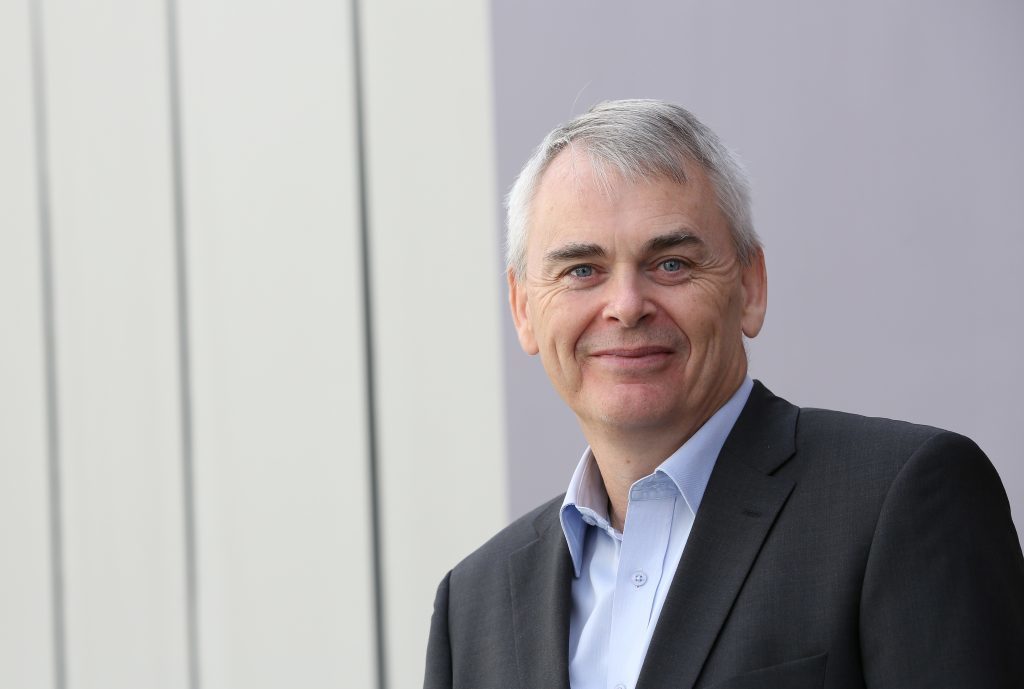
There are enough green shoots to suggest recovering upstream activity. Expro EVP Alistair Geddes shares some of what the group is doing to play its part.
Upstream oil & gas is prone to price cycles and many of us have unfortunately been through several. Plot them out and it becomes clear that the latest is characterised by an extended trough and led to some different behaviours by producers, contractors and the supply chain.
What we normally see fairy early in a cycle, is a shift from high-spend capex projects to lower spend opex activities.
Oil companies become reluctant to invest in new projects and instead turn their attention to getting more out of existing resources and infrastructure. But we haven’t even seen the latter in this cycle.
There’s been a real clamp-down; mostly only essential spend has been allowed. However, we are beginning to see the opex wheel turning again, both from a well intervention perspective but also in the production segment.
At Expro we have received a lot of enquiries in our production space, both in terms of enhancement, which gives people more out of what they’ve got, and early production, which is a cost-effective way to carry out a fuller appraisal of newly discovered resources, or to realise early production and related cash-flow.
Where we’re focused is in adding value by integrating our services to realise greater value for our clients, by increasing production/recovery and reducing cost.
This includes adding more tools to our portfolio, led by our very well-known EGIS (Expro Group Integrated Services) product line. We’ve repositioned EGIS to provide increased petroleum engineering and project management capabilities to support our services.
But what we won’t do is take our toolbox to clients and ask: ‘Do you need a new well unloading system, or do you need a water removal system, or do you need to perforate a well?’
What we’re saying instead is: ‘We’re here to help you improve production, but what do you think the challenges facing you are and how can we help you overcome these?’
And we’ve been enjoying success, particularly the brownfield environment … say a field that’s short on instrumentation for which we can offer clamp-on non-intrusive metering technology. From that we can conduct surveillance of production across wells and facilities, build models and, from the models, work out where the bottle-necks or inefficiencies are and help them with solutions to those inefficiencies.
Turning to the increasingly important late life into decommissioning market, Expro has major role to play in this and there are different ways in which we can add value.
For example, we’re working with some of our clients to see if we can reduce the cost base of an asset, enabling more reserves to be recovered than previously thought possible; so pushing back decommissioning. When we reach the end of the road, we take a similar collaborative approach to well abandonment, offering rigless solutions that reduce the overall cost of decommissioning.
Ultimately it has always been important to differentiate ourselves as a company and developing and applying technologies is an important means of doing so. A question asked of me just recently was: ‘What are currently the most defining technologies in the Expro stable?’
Even through the depths of the latest down-cycle we have sought to sustain year-on-year our absolute spend on technology, increasing this in 2017.
Indeed there are now opportunities to develop technologies to assist recovery from the current cycle, including our core subsea business.
Whilst subsea recovery is some way off, we are beginning to receive enquiries regarding various developments being put back on the table; not necessarily for this calendar year but next. To maintain our leading position in this area, we have developed our Next Generation Landing String (NGLS) to deliver a complete landing string package in line with the industry’s latest API 17G standards. It’s about making sure we continue to evolve our offering in order to stay ahead in the marketplace.
We’ve also designed a range of small footprint modular production solutions to solve our client’s problems. This includes a suite of tools that can either remove sour gas, or excess water, which are clearly a growing challenge as a field gets older, or indeed lowers the surface pressure. Rather than having to workover wells and putt in an artificial lift system, we can deliver a cost effective, very small footprint modular solution on the process plant that creates a low pressure environment to flow wells. This agile, solutions based approach is very popular in the current market environment.
Likewise we are developing our suite of intervention products, focused around improving the cost of hydrocarbon recovery in brownfield developments with new tooling and, in one case, developing different methodologies. As operators have reined back on new projects investment and focused on operating what they have, Expro is developing a better and more cost-effective way of accessing wells than previously possible – whether subsea or land-based. This includes improved tooling for harvesting information, either more clearly and/or more cost effectively than has been previously possible.
However in terms of newer technologies, our sonar clamp-on meters are truly powerful. In many ways you need to define the problem before you can solve it and in many cases across the globe, operators that don’t have the suite of data to be able to work out whether production is sub-optimal. Using our compact meters and a small number of people, we can go up to a pipeline or wellhead, clamp on a reader and get critical production measurements. We’ve undertaken a lot of evaluation work on separators, testing whether they are working and if artificial lift is fully optimised. It’s a unique technology that can add up to 10-15% of incremental production, and in this market, we think that’s value-adding.
Recommended for you
